
Bertalan éjszakája
¥11.36
Bertalan éjszakája
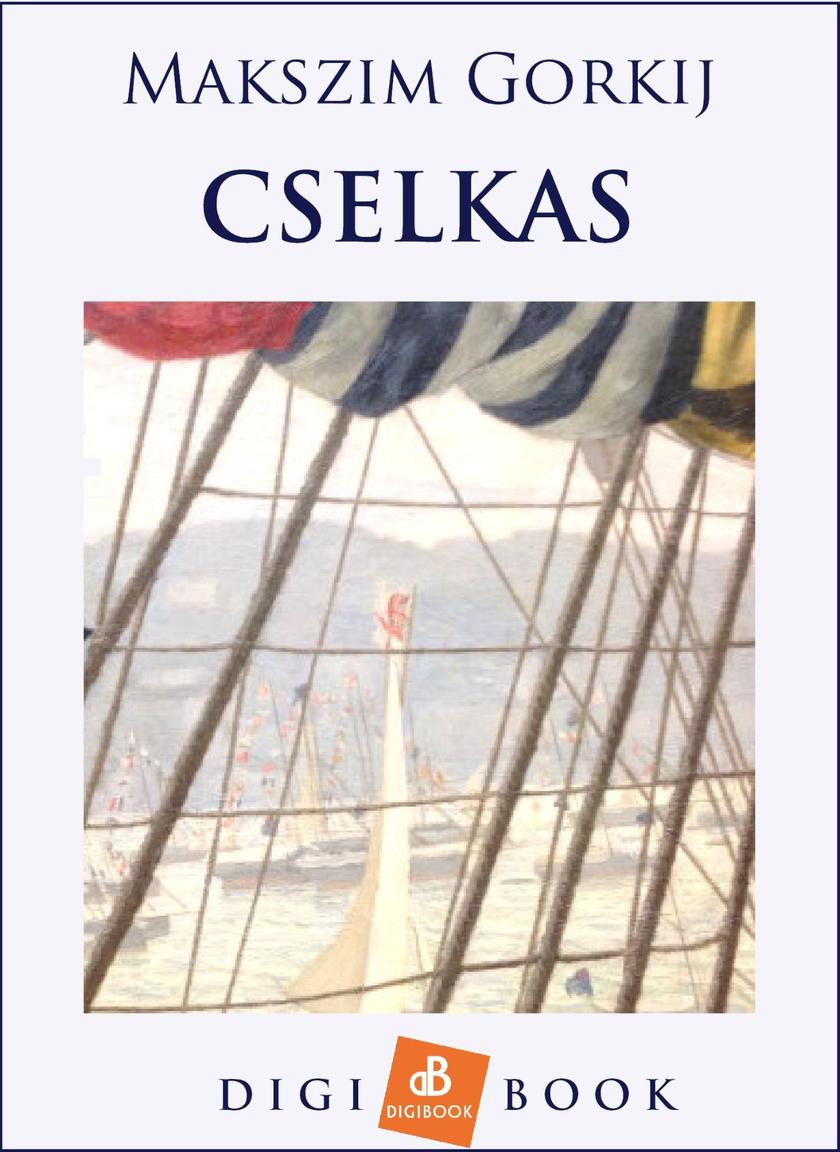
Cselkas
¥11.36
Cselkas
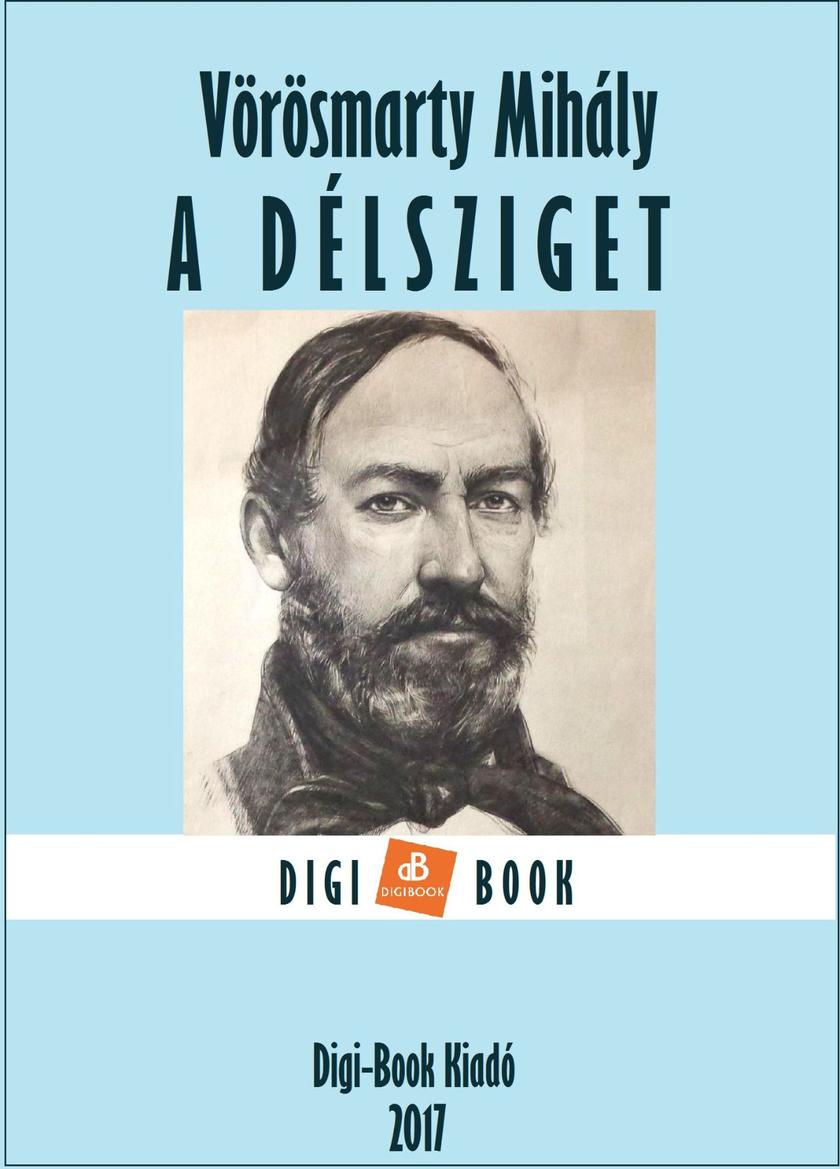
A Délsziget
¥11.20
A Délsziget
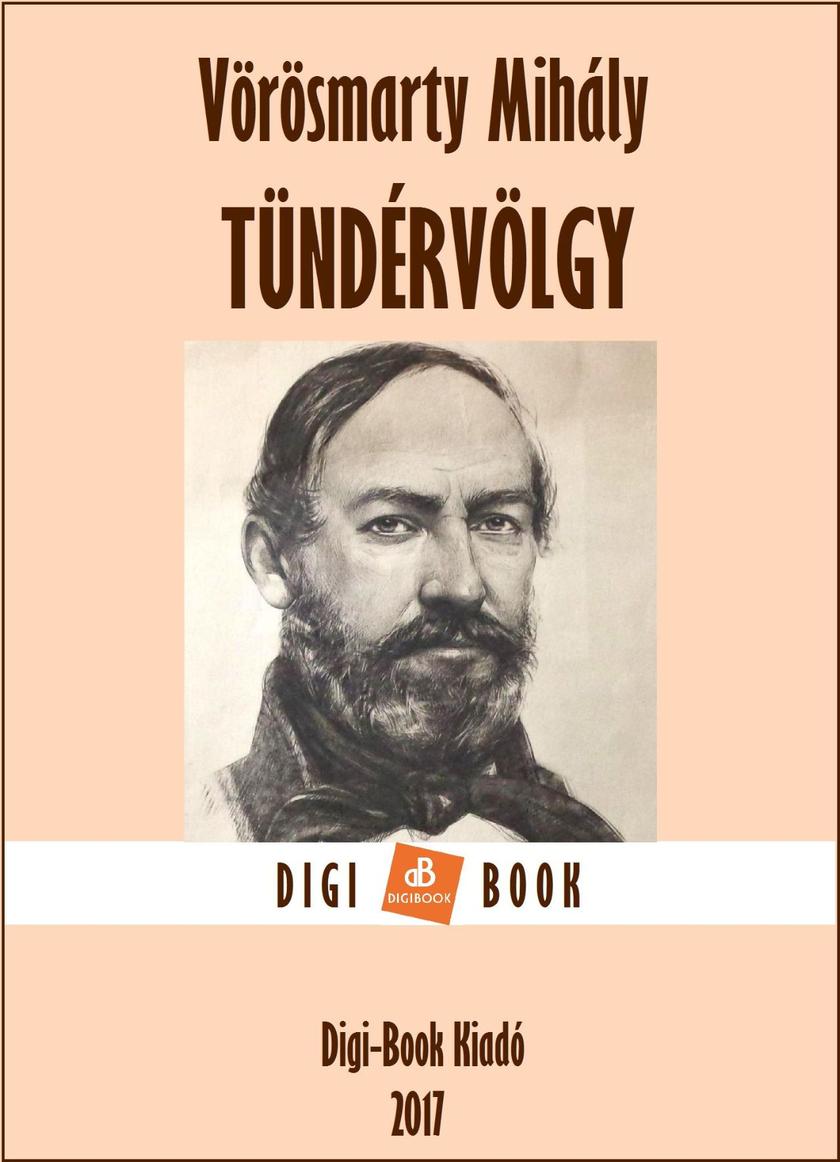
Tündérv?lgy
¥11.20
Tündérv?lgy

A cápák birodalmában
¥11.20
A cápák birodalmában

Tudatelégtelenség
¥11.20
Volt egyszer egy büszke város, Trója, melyet a g?r?g?k ?r?kre elt?r?ltek a f?ld színér?l. ?m egy maroknyi trójai, élén a h?s Aeneasszal útra kelt, hogy megtalálja új hazáját: így kezd?dik a Római Birodalom eredetmítosza. ?s így kezd?dik Szabó Magda regénye is, hogy Aeneast r?gt?n az elején, a menekülés k?zben váratlanul odaveszett feleségével, Creusával cserélje fel. A pillanat egy rendkívüli n? fájdalmasan szép és ironikus t?rténete. Egy n?é, akir?l mindenki azt hiszi, férfi. T?rténelmet ír, bejárja az alvilágot, látja a j?v?t, de nem ismeri a szerelmet. Imádott és rettegett félistenként kell élnie, holott nem vágyik másra, mint hétk?znapiságra. Halhatatlan, bár már megmenekülése pillanatában halott. Szabó Magda az antik világba helyezi a kiválasztottak magányának id?tlen t?rténetét. Színpompás fantáziája mitikus figurákat változtat hús-vér lényekké és sosemvolt isteneket b?v?l elénk. A mágiát minduntalan megt?r? kesernyés humor viszont mai m?vé, egy meghasonlott lélek modern eposzává avatja A pillanatot.
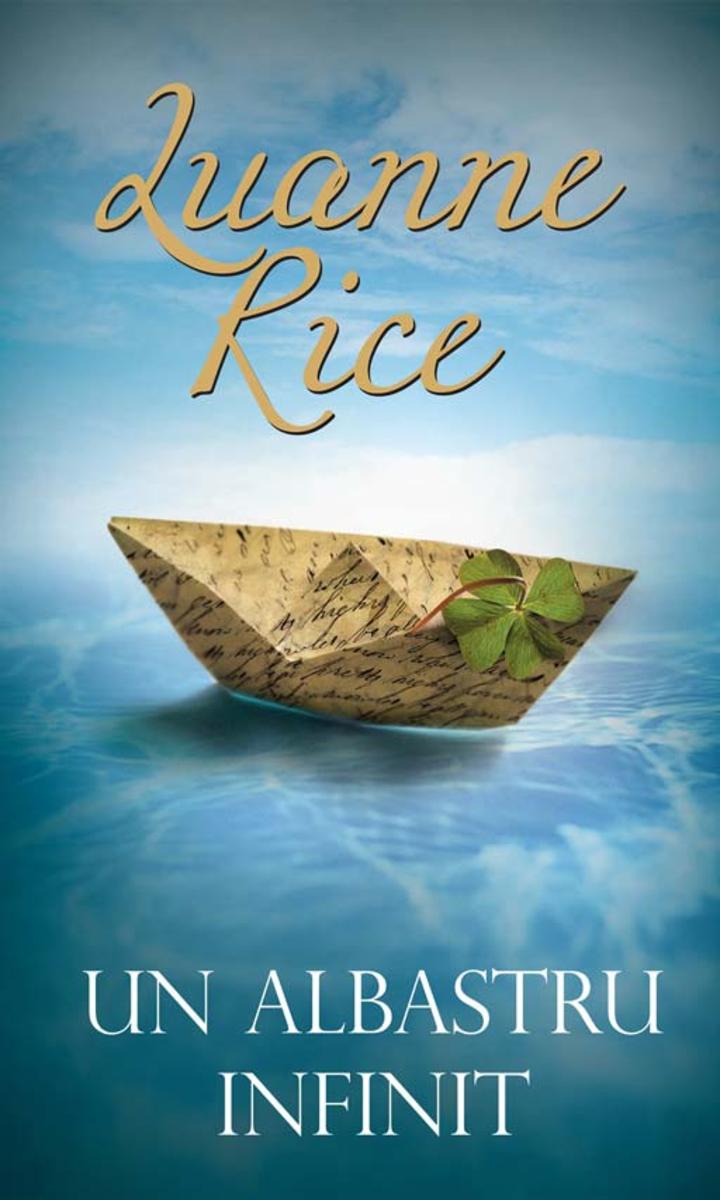
Un albastru infinit
¥11.04
Adrian Punescu scrie proz cu degetele arse de miracolul poeziei, i de aici succesul tulburtor, care, n loc s mntuie, nspimnt, oblig i rtcete. Poet al fluenelor de liliac n grle de piatr rar, al brumelor de bronz, al cderii n rnile dorului i n hohote de chihlimbar, grav despicat de neiertare i de rzvrtire, Adrian Punescu intr n hotarele prozei prin vijelia reportajului. (...) Puin i pas dac lumea l aplaud sau l njur, el vrea s rstoarne i s cldeasc, i n-are timp s cpieze stnd ntr-un picior, viaa e scurt i, dac nu vrea s se ndrepte prin cntec (i nu vrea), trebuie rezidit din mers i nvat s cnte. Reportajul lui Punescu e, nainte de toate, unul de atitudine, adevrul sare din pagin ca miezul dintr-o ceap zdrobit cu pumnul (...), fulgerul, aparent liric i aparent hrnit de curcubeie, e un arc al ndoielii, un crlig veninos umblnd prin crpturile pmntului, strigtul doare, suspinul are ghimpi n cretet, gerul frige, apsarea nghea.Durabila for a reporterului Adrian Punescu vine de acolo c el n-are chef, n nici o pagin, s fie ru de but n apte linguri, ci numai fluviu azvrlindu-se n mare, cu toate aluviunile i rzboaiele sufletului.“

Nun?i de vis. Pove?ti adev?rate. Vol. 4
¥11.04
Йшов четвертий р?к св?тово? в?йни. Втомлений под?ями генерал-лейтенант рос?йсько? ?мператорсько? арм?? Павло Петрович Скоропадський, нащадок старовинно? старшинсько? фам?л??, ще не знав, що стане гетьманом незалежно? Укра?нсько? Держави. Епоха зм?н, яку самовбивчо наближали революц?онери вс?х мастей, перетворилася на апокал?псис, в?йну вс?х проти вс?х, але Скоропадському стало духу взяти на себе невдячну ношу державного буд?вництва. Спроба зак?нчилася ц?лковитим ? оч?куваним провалом, але окрем? починання гетьмана дотривали до наших дн?в: саме йому Укра?на завдячу?, наприклад, Академ??ю наук. У цих пронизливих спогадах постають буремн? роки революц?? ? громадянсько? в?йни та особиста драма Скоропадського, який за влучними словами Вячеслава Липинського, став укра?нцем, т?льки переставши бути гетьманом. Але, на жаль, було вже п?зно: Укра?ну охопив червоний морок з п?вноч?. Коментар? до видання п?дготували Георг?й Потульницький, Владлена Мара?ва. П?слямова — Ярослава Пеленського, ?горя Гирича та Георг?я Папак?на.
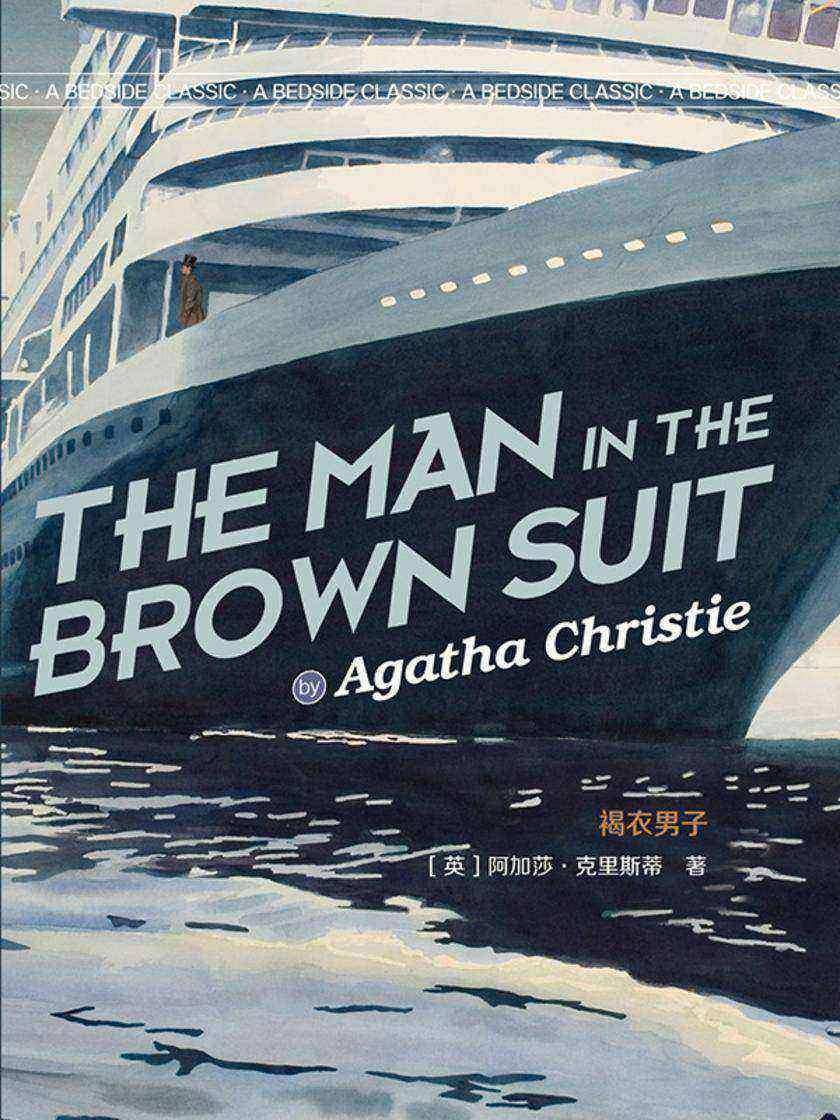
褐衣男子(英语文库)
¥10.99
本书作为我社“经典英语文库”第15辑中的一种,精选由英国著名女作家阿加莎·克里斯蒂的著名小说《褐衣男子》。这是阿加莎·克里斯蒂一次以生活里的人物为原型创作一个书里的角色,而且是应一位朋友的要求——爵士的秘书一角的原型是阿加莎·克里斯蒂前夫的朋友、邀请阿加莎一家去南非旅行的贝尔彻,在题词中,阿加莎也将本书献给了贝尔彻。本书后来连载在《新闻晚报》上,为阿加莎·克里斯蒂获得一笔不菲的收,连载时改用了一个俗气的名字:《女冒险家安娜》。

Infinite Repeat
¥10.83
We've seen Lainey's story in The Art of Lainey, but now we'll hear Micah's tale in this digital novella from Paula Stokes.Seventeen-year-old Micah Foster is looking forward to the return of his girlfriend, Amber. She's been away in Los Angeles recording an EP with her band, Arachne's Revenge. But when Amber returns home on the anniversary of Micah's dad's death, everything has changed. Over the next few days, as Micah tries to repair his relationship with Amber, he relives the events of the past few years and recognizes a pattern. His friends and family are right—Micah self-destructs every April. Will Amber be this year's casualtyOr can Micah escape his past in time to fix his present?Epic Reads Impulse is a digital imprint with new releases each month.

The Blue-Haired Boy
¥10.83
Set before the events of Courtney C. Stevens's debut novel, Faking Normal, this digital short story focuses on Bodee Lennox, otherwise known as the Kool-Aid Kid.Bodee Lennox has secrets. About where he got the four-inch scar on his leg. About the bruises on his back. About what it's really like to live in the Lennox household. These are things he doesn't share with anyone . . . until he meets Gerry, a girl with bright-green hair and a smile the size of Alaska. When Gerry falls out of a bus in Rickman, Tennessee, and lands at Bodee's feet, she gives Bodee two things he desperately needs: a friend and a chance to leave Rickman behind, even if it's just for a few hours.He joins Gerry on her epic bus trip for as far as his money will take him. And by the end of the day, more of Bodee has changed than just the color of his hair.Epic Reads Impulse is a digital imprint with new releases each month.

Stolen
¥10.83
In this thrilling 100-page digital prequel novella, enter the world of Taken, a heart-pounding dystopian sci-fi series from Erin Bowman.Before Gray Weathersby uncovered the truth about Claysoot and the Laicos Project, a girl named Bree came of age in the coastal settlement of Saltwater—and made her own surprising journey to the world beyond its borders. In Stolen, discover the story of Bree's life before she was Snatched from her home, before she joined the rebellion, and before she met a boy named Gray. . . .Epic Reads Impulse is a digital imprint with new releases each month.

The Fear Trials
¥10.83
Meadow Woodson has been trained to survive. This is a prequel to The Murder Complex, by Lindsay Cummings, and it is set in a blood-soaked world where the murder rate is higher than the birth rate. For fans of Moira Young's Dust Lands series, La Femme Nikita, and the movie Hanna.Meadow Woodson's father calls it The Fear Trials, and it is a rite of passage in their family. Meadow is up against her brother Koi. The Fear Trials will both harden her and make her brave. If Meadow wins, she will get a weapon of her own and the right to leave the Woodsons' houseboat without her father or mother at her side. Set in the violent, complex, and mysterious world of The Murder Complex, and introducing Meadow Woodson—a teenage girl trained to survive no matter what the cost—and her family, who are together for the last time on their houseboat in the Florida Everglades.Epic Reads Impulse is a digital imprint with new releases each month.

Survivors: Sweet's Journey
¥10.83
A sixty-page novella set in the world of the bestselling, action-packed Survivors series by Erin Hunter! This original prequel brings readers a behind-the-scenes look at the story of Sweet, and how she came to be the fearless Beta of the Wild Pack.When the Big Growl struck and changed Lucky's world forever, he escaped the ruins of the longpaw city with Sweet by his side. Then they were separated, and Lucky never thought he'd see her again—until he met the Wild Pack that ruled the forest. . . .Survivors: Sweet's Journey also includes a teaser chapter to Survivors #6: Storm of Dogs.
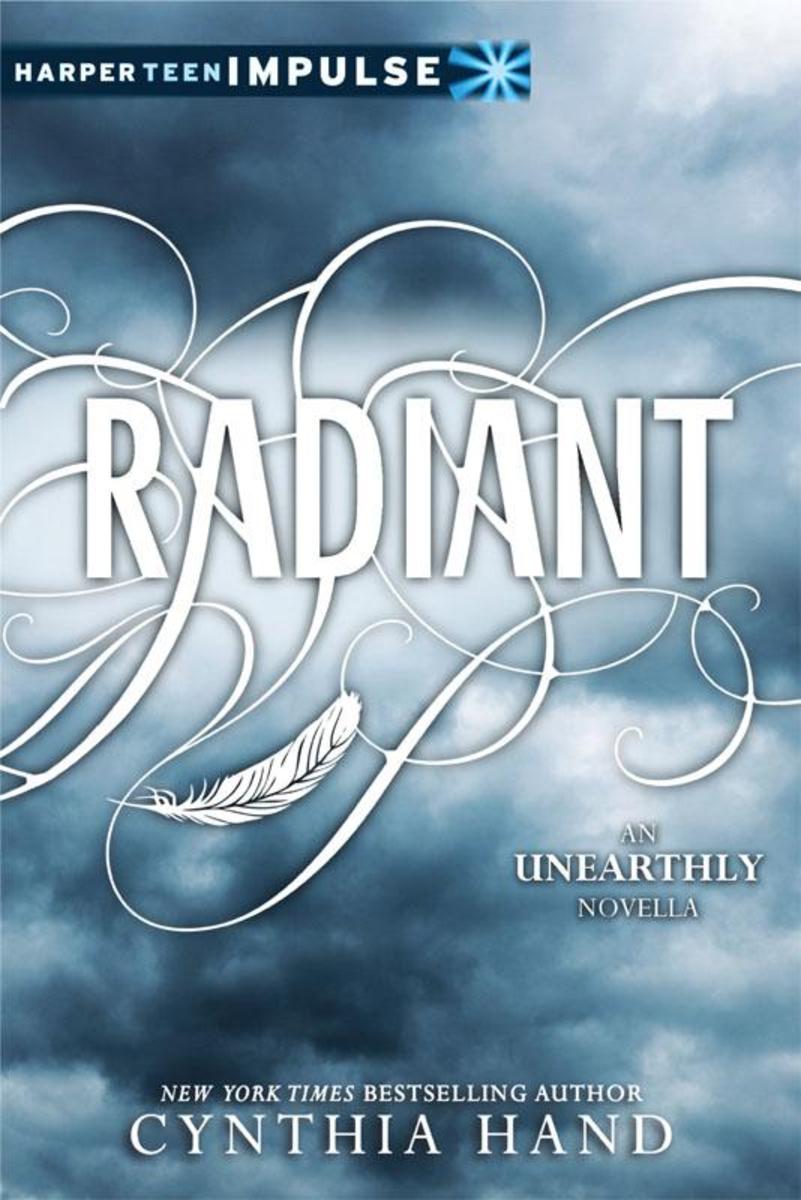
Radiant
¥10.83
From New York Times bestselling author Cynthia Hand comes a riveting original novella (available only as an ebook) set in the world of the Unearthly series.Clara is desperate to get away—from the memories that haunt her in Wyoming and the visions of a future she isn't ready to face—and spending the summer in Italy with her best friend, Angela, should be the perfect escape. . . .For as long as she can remember, Angela has been told that love is dangerous, that she must always guard her heart. But when she met Phen two years ago she was determined to be with him, no matter the costs. Now she must decide whether she can trust Clara with her secret, or if telling her the truth will risk everything she cares about.Alternating between Angela and Clara's perspectives, Radiant chronicles the unforgettable summer that will test the bounds of their friendship and change their lives forever.Epic Reads Impulse is a digital imprint with new releases each month.
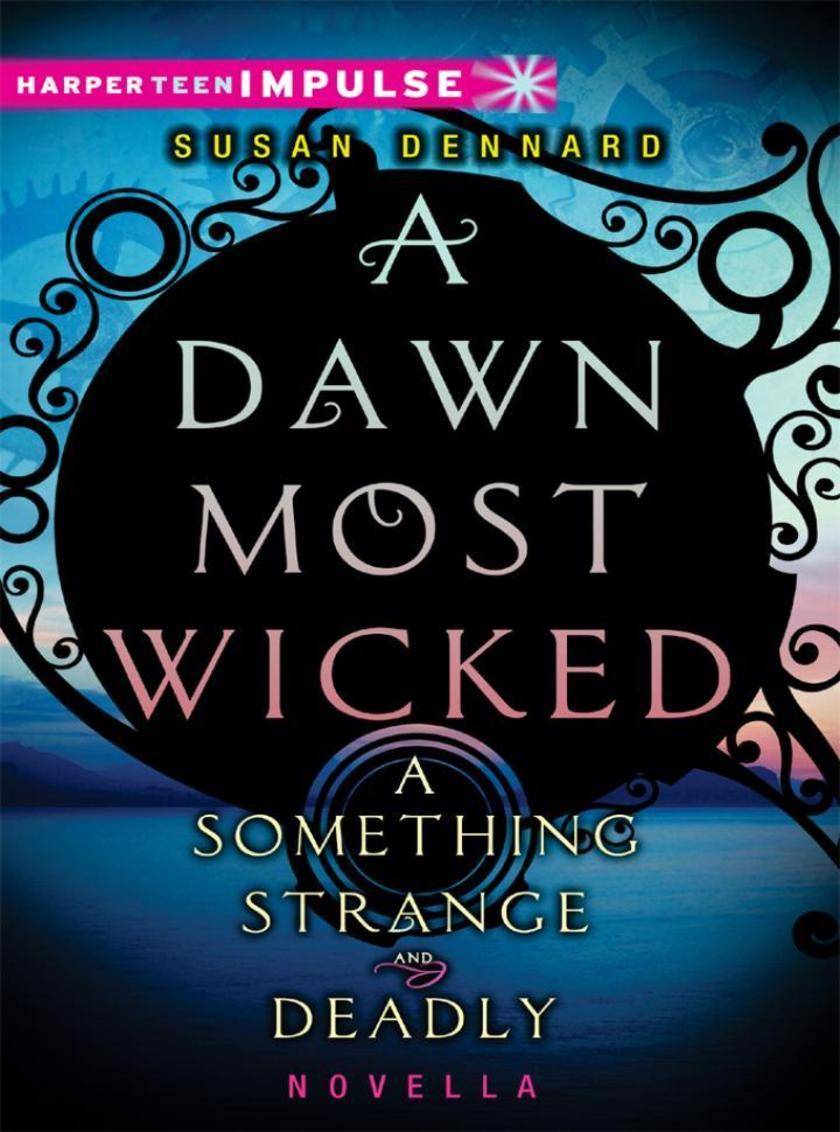
A Dawn Most Wicked
¥10.83
He has stolen Eleanor Fitt's heart, but who was Daniel Sheridan before he became a Spirit-HunterIn this suspenseful 100-page digital-original romance novella from Something Strange and Deadly author Susan Dennard, Daniel's past—and his first love—will be exposed.With a checkered past like Daniel Sheridan's, landing an apprenticeship aboard the Sadie Queen was just the fresh start he was looking for. But that's the last thing it's been. Teeming with ghosts that plague the crew with horrific nightmares, this ship is more trouble than it's worth to Daniel. Except for Cass. . . .Gorgeous and stubborn to a fault, apprentice pilot Cassidy Cochran is the one thing keeping Daniel on board. Though they started as best friends, their relationship has grown into something more intense. Their stolen, sometimes steamy moments have Daniel feeling something he never thought possible: love.Enlisting the help of a short-tempered Chinese boy named Jie and a Creole gentleman named Joseph, the three attempt to rid the boat of the ghosts—for if they don't, the Sadie Queen will be put out of business. And with Cass's fatally-ill sister in need of expensive medical help, Daniel is more determined than ever to save the ship. But when he discovers that the ghosts are linked to a dangerous curse whose caster wants everyone on board dead, Daniel will come face-to-face with an evil so dark, so wicked, that it will change the course of his life forever.Epic Reads Impulse is a digital imprint with new releases each month.
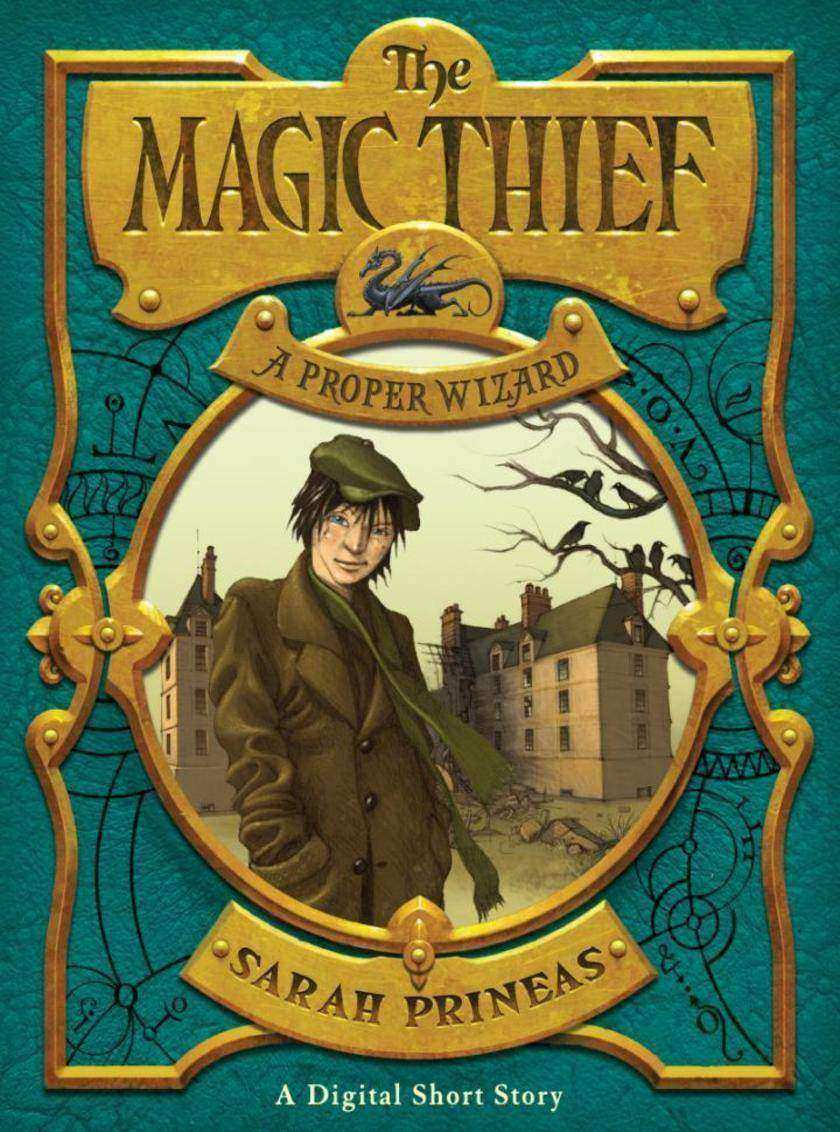
The Magic Thief: A Proper Wizard
¥10.83
From award-winning author Sarah Prineas comes a brand-new digital short story! This original 50-page short story will enchant fans of the Magic Thief series. Thief-turned-wizard Connwaer has earned the reputation as one of the greatest magisters of the age, but not everyone believes in his abilities. When Verent, a young apprentice from neighboring Danivelle, comes to Wellmet to ask for Conn's help with his city's magical problems, he is less than impressed with Conn. Will Verent be able to overcome his misgivings about Conn in order to help his townAnd with Conn's help, will Verent become a proper wizard?Includes a special sneak peek at the first chapter of The Magic Thief: Home, the fourth installment in the Magic Thief series!
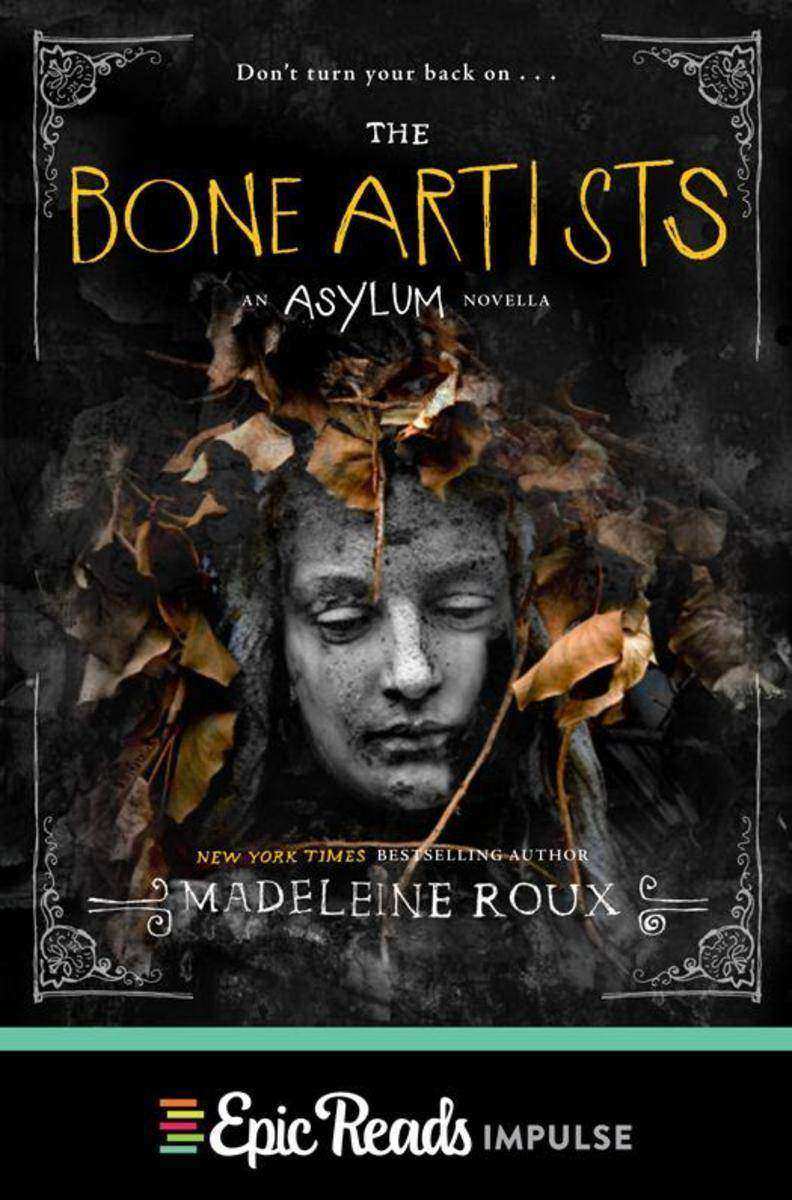
The Bone Artists
¥10.83
In this bone-chilling digital original story set in the world of Madeleine Roux's New York Times bestselling novel Asylum, a Louisiana teen tries to make tuition money working for a sinister organization but finds that leaving comes at a terrible cost.When Dan, Abby, and Jordan meet Oliver in Catacomb―the third book in the Asylum series―he is a mysterious young antiques dealer with a dark past. But before he was stuck in America's most haunted city, he was a teenager with a bright future ahead of him. In this story, we find Oliver saving up to attend his dream college in the fall and leave behind his family's New Orleans antique shop for good. And if his job just happens to involve robbing graves for a group calling themselves the Bone Artists, well—money is money, and it's only for now. But Oliver soon learns that the Bone Artists don't take kindly to deserters. And there are some debts that can never be repaid.With a mounting sense of dread that builds to a terrible end, The Bone Artists is a thrilling installment in the Asylum series that can stand on its own for new readers or provide a missing piece of the puzzle for series fans.Epic Reads Impulse is a digital imprint with new releases each month.

The Get Over
¥10.83
From beloved author Walter Dean Myers, this original 20-page short story serves as a prequel to his award-winning novel Monster, which has been read and loved by millions of readers.Word on the street is that a robbery is about to go down in Harlem, and Steve Harmon is right in the middle of it. Everyone is trying to prove who's the toughest. Steve gets caught up in the talk and wonders about the difference between right and wrong. Should he turn these guys inStay quietWhat choice will Steve make?Walter Dean Myers was the New York Times bestselling author of Monster, the winner of the first Michael L. Printz Award; a former National Ambassador for Young People's Literature; and an inaugural NYC Literary Honoree. Myers received every single major award in the field of children's literature. He was the author of two Newbery Honor Books and six Coretta Scott King Awardees. He was the recipient of the Margaret A. Edwards Award for lifetime achievement in writing for young adults, a three-time National Book Award Finalist, as well as the first-ever recipient of the Coretta Scott King–Virginia Hamilton Award for Lifetime Achievement.Epic Reads Impulse is a digital imprint with new releases each month.
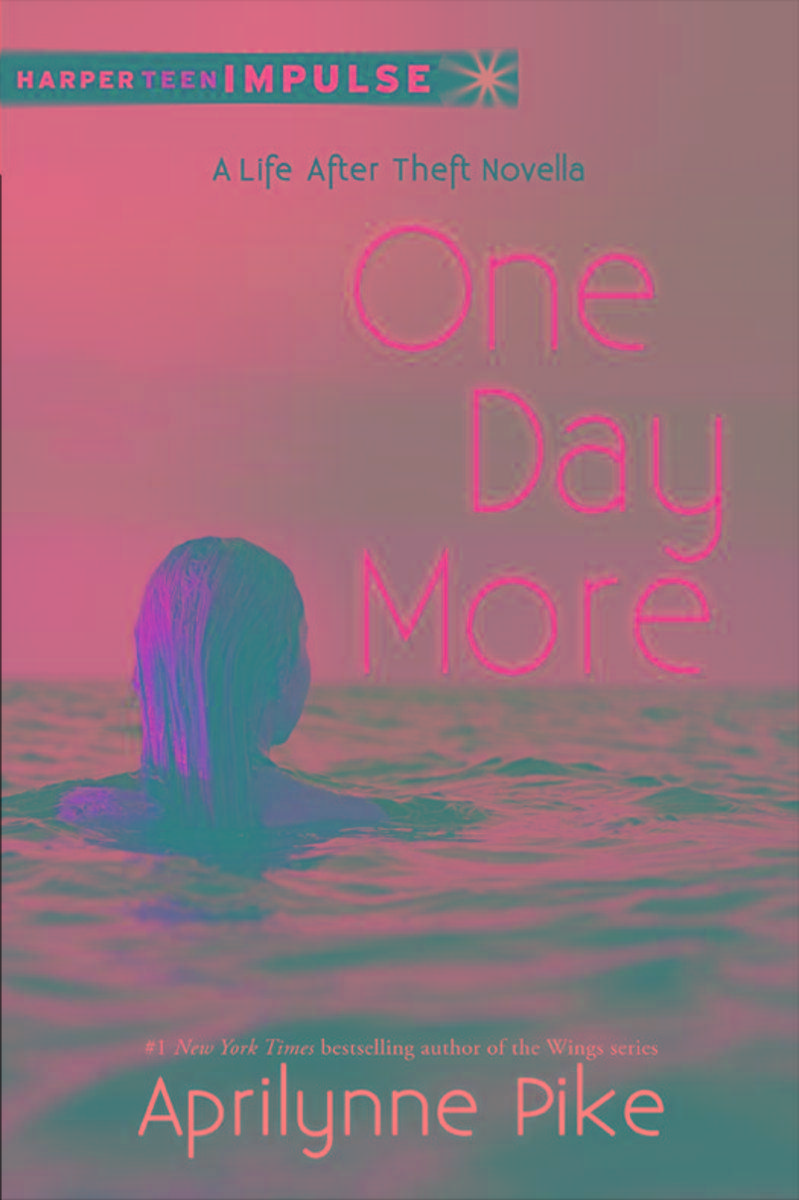
One Day More
¥10.83
This captivating and poignant 50-page digital original short story is a prequel to New York Times bestselling author Aprilynne Pike's Life After Theft—a haunting novel about the true cost of paying for one's mistakes.Most teenagers would do anything to have Kimberlee Schaffer's life. But beneath the beauty, the wealth, and the popularity, Kimberlee has a terrible problem: an uncontrollable, insatiable need to steal. Over the years, she's learned to hide her secret from those closest to her, but now it's completely consuming her life—and Kimberlee is afraid that if she doesn't find a way to put an end to her compulsion, she may see her perfect world come crumbling down.Epic Reads Impulse is a digital imprint with new releases each month.

Thrice Sworn
¥10.71
From award-winning author Sarah Prineas comes an all-new short story! This original thirty-page fantasy-adventure short story serves as a prequel to Winterling.Finn loves being a puck. He loves causing trouble, hanging out with his puck-brothers, and shifting from boy to dog to horse. There's nothing more fun! However, when Finn learns of the Mór's treacherous plan to get rid of the Lady of the Summerlands, will anyone believe himAnd how far will he go to make sure it doesn't happen?Sarah Prineas is the author of the Magic Thief series and the Winterling trilogy (also composed of Summerkin and Moonkind).




 购物车
购物车 个人中心
个人中心



